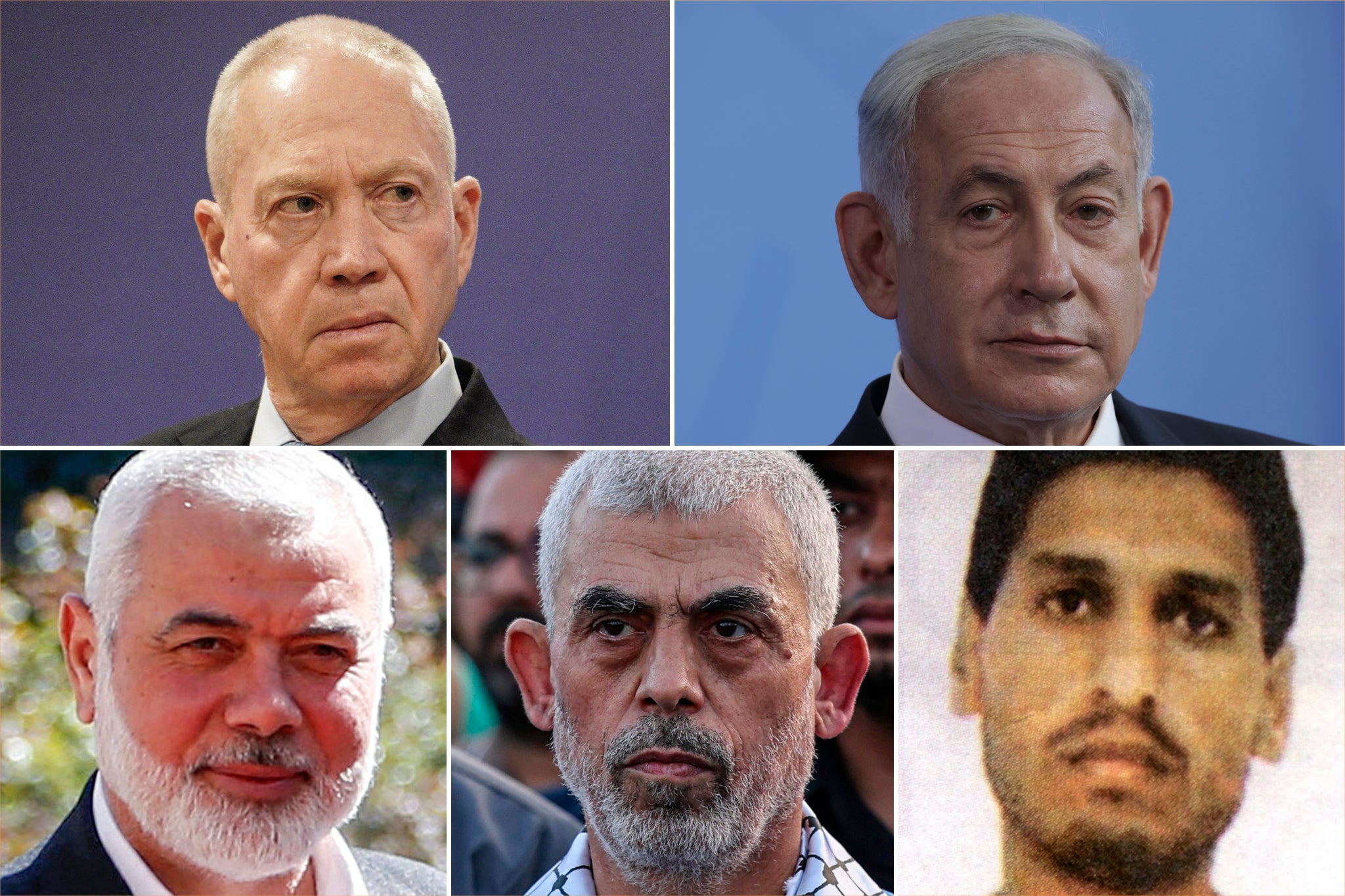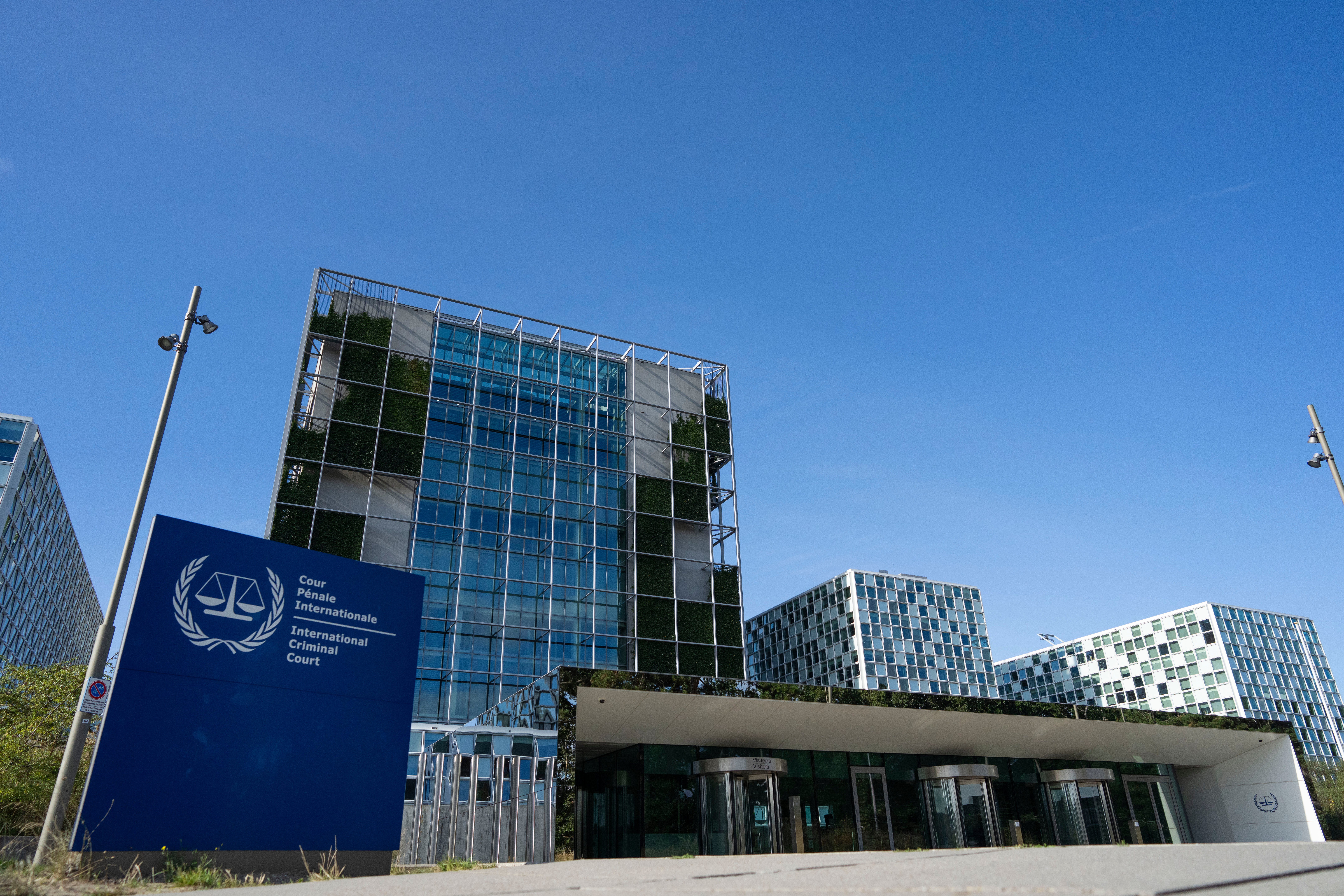Why has the International Criminal Court issued a warrant for Netanyahu – and could he be arrested?
The Israeli prime minister has condemned the issuing of the warrant – calling it ‘absurd’
Your support helps us to tell the story
From reproductive rights to climate change to Big Tech, The Independent is on the ground when the story is developing. Whether it's investigating the financials of Elon Musk's pro-Trump PAC or producing our latest documentary, 'The A Word', which shines a light on the American women fighting for reproductive rights, we know how important it is to parse out the facts from the messaging.
At such a critical moment in US history, we need reporters on the ground. Your donation allows us to keep sending journalists to speak to both sides of the story.
The Independent is trusted by Americans across the entire political spectrum. And unlike many other quality news outlets, we choose not to lock Americans out of our reporting and analysis with paywalls. We believe quality journalism should be available to everyone, paid for by those who can afford it.
Your support makes all the difference.The International Criminal Court (ICC) has issued an arrest warrant for Israeli prime minister Benjamin Netanyahu over alleged war crime during the conflict in Gaza.
The conflict in Gaza was trigged by an attack inside Israel by Hamas on 7 October 2023, during which around 1,200 Israelis were killed, while another 251 people were taken hostage. The ICC said it had found reasonable grounds to believe that Deif was responsible for crimes against humanity and war crimes including murder, torture, rape and hostage.
On Thursday, the ICC issued warrants for Netanyahu and his former defence minister Yoav Gallant accusing them of war crimes and crimes against humanity.
It also issued a warrant for Hamas leader Mohammed Deif, who Israel said it had killed in an airstrike over the summer, accusing him of war crimes over the attack on Israel.
Though the decision turns Mr Netanyahu into an internationally wanted suspect, the extent of the warrant’s practical implications are unclear given Israel and its major ally, the US, are not members of the court.
As the ICC issues the arrest warrants, here we explain what they are and what they mean for Mr Netanyahu:
What is an ICC arrest warrant?
The International Criminal Court in The Hague prosecutes those accused of war crimes, crimes against humanity, genocide and crimes of aggression (when a state using armed force against the sovereignty of another state). This jurisdiction is laid out in the court’s founding treaty, the Rome Statute.
The process of issuing an ICC arrest warrant begins with the chief prosecutor gathering evidence and identifying a suspect. They will then request the ICC judges to issue a warrant.

In Mr Netanyahu’s case, this was done by the court’s chief prosecutor, Karim Khan, earlier this year in May.
On Thursday, the three-judge panel issued a unanimous decision to issue the warrants, meaning Netanyahu, Gallant and Deif are wanted as a suspects to stand trial in the Hague.
The ICC chief prosecutor withdrew his request for warrants for two other senior Hamas figures, Yahya Sinwar and Ismail Haniyeh, after they were both killed in the conflict.
Why has it been issued?
The ICC said there were “reasonable grounds” to believe that Mr Netanyahu and Mr Gallant “bear criminal responsibility for the war crime of starvation as a method of warfare” and that they had “intentionally and knowingly deprived” Gaza’s civilians of food, water, medicine, medical supplies and fuel and electricity.
“The Chamber considered that there are reasonable grounds to believe that both individuals intentionally and knowingly deprived the civilian population in Gaza of objects indispensable to their survival, including food, water, and medicine and medical supplies, as well as fuel and electricity,” the three-judge panel wrote in its unanimous decision.
Aid agencies and the UN have been warning for months of an acute crisis across the Gaza Strip, with food, water, power and medical supplies all in increasingly short supply.
Shortly after the warrant was issued, Mr Netanyahu condemned it saying Israel “rejects with disgust the absurd and false actions.”
In a statement released by his office, he said: “There is nothing more just than the war that Israel has been waging in Gaza.”
Could Netanyahu be arrested?
The warrant means Netanyahu is now an internationally wanted suspect and that the ICC’s 124 member states – including the UK – would be obliged to arrest him or Gallant if they were to enter their territory.

However, the ICC itself has no police to enforce warrants – of which Israel and its major ally, the US, are not members – which means neither are likely to face judges in the Hague any time soon.
But the Netherlands' foreign minister Caspar Veldkamp said his country was prepared to act upon the warrants, Dutch news agency ANP reported, showing that international travel will be much more difficult for both Mr Netanyahu and Mr Gallant.
Russian President Vladimir Putin, who is wanted on an ICC warrant for alleged war crimes in Ukraine, recently showed he could still visit an ally when he travelled to Mongolia, one of the court’s member states, and was not arrested.
Politically, the move is a dramatic escalation of legal proceedings and is likely to further isolate Israel and complicate efforts to negotiate a ceasefire to end the conflict.
Can an ICC investigation or arrest warrant be paused?
The court's rules allow for the UN Security Council to adopt a resolution that would pause or defer an investigation or a prosecution for a year, with the possibility of renewing that annually.
After a warrant is issued the country involved or a person named in an arrest warrant can also issue a challenge to the jurisdiction of the court or the admissibility of the case.
A case can be deemed inadmissible at the ICC when it is already being investigated or prosecuted by a state with jurisdiction over the crimes alleged.
But the court has made it clear in the past that this exemption could only apply when a state is investigating or prosecuting the same people for substantially the same alleged crimes. An investigation into corruption charges, for instance, would not meet that "same person, same conduct" rule.
If there is a request to delay the investigation, the prosecutor will pause the case and review if the state which requested the deferral is indeed carrying out a genuine investigation.
If the prosecutor deems the national investigations are insufficient, he can apply for judges to reopen the investigation.
Could this warrant influence other cases?
Not directly, but perhaps indirectly. The ICC application is a separate matter from, for example, court cases demanding an arms embargo against Israel or South Africa's case at the UN's top court, the International Court of Justice, which accuses Israel of violating the Genocide Convention in Gaza. Israel denies those allegations.
However a decision by ICC judges that there are reasonable grounds to believe Mr Netanyahu and former defence minister Mr Gallant are committing war crimes and crimes against humanity in Gaza, it could strengthen South Africa's ICJ case, as that court also looks at other courts' determinations.
The decision to issue a warrant can also bolster legal challenges demanding an arms embargo elsewhere, as numerous states have provisions against selling arms to states which might use them in ways that violate international humanitarian law.
Reuters contributed to this report

Join our commenting forum
Join thought-provoking conversations, follow other Independent readers and see their replies
Comments